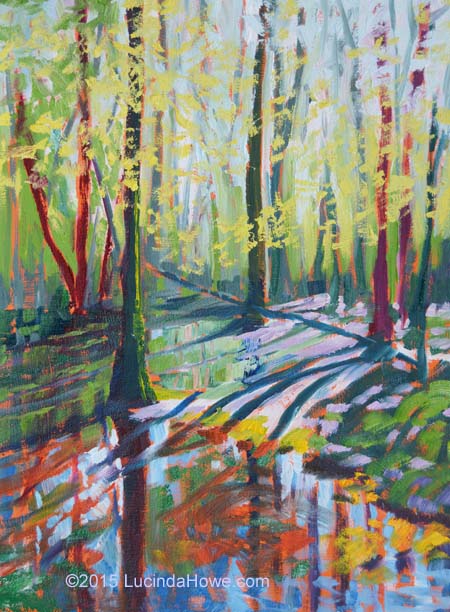
12×9″
Oil on masonite
©2015 Lucinda Howe
www.lucindahowe.com
$295
When I paint outdoors in a new location, it’s enough of a challenge to select a composition, figure out the angle of the sun, carry the equipment, and capture shadows before the sun moves. So I use a familiar technique, usually starting with a pre-toned red board, simplifying shapes, and painting quickly without much blending.
When I paint in the studio, I want to feel more free to experiment with different techniques, so I rely on familiar landscapes or simple flower shapes. This allows me to concentrate on new materials or specific color schemes.
In this case, I prepared some boards with orange gesso as an underpainting. I’m using Holbein’s color gesso in Orange. It’s an opaque, matte finish primer used to create a surface with a slight texture that holds the paint. I usually use a red underpainting, so the orange is a change. I wasn’t sure how it would work, so I didn’t want to use it for the first time outdoors.
I looked for a photo of a familiar place that had some blue water or sky reflection in the foreground that would provide complementary color contrast with the orange. For this painting, I selected a photo of the swamp at Congaree National Forest south of Columbia. I was attracted by the light coming through the trees and the long shadows as well as the water. To complete the painting, I changed some of the colors but kept the value relationships. I left a lot of the orange showing in the foreground and covered most of it with cool blues and greens in the background to give depth to the painting.
To me a successful landscape painting incorporates both the sense of place and personal color choices that represent my emotional connection to the landscape.